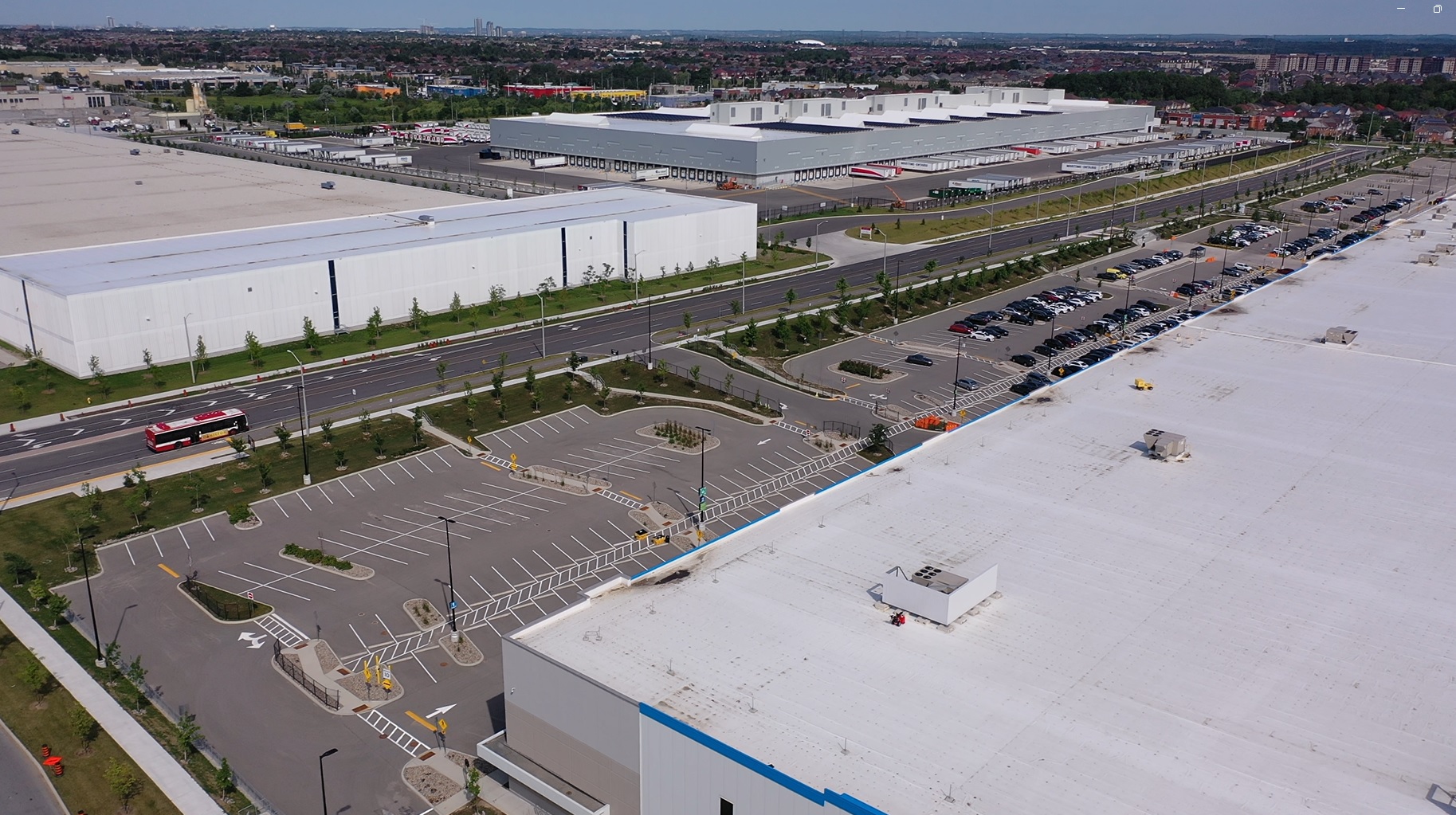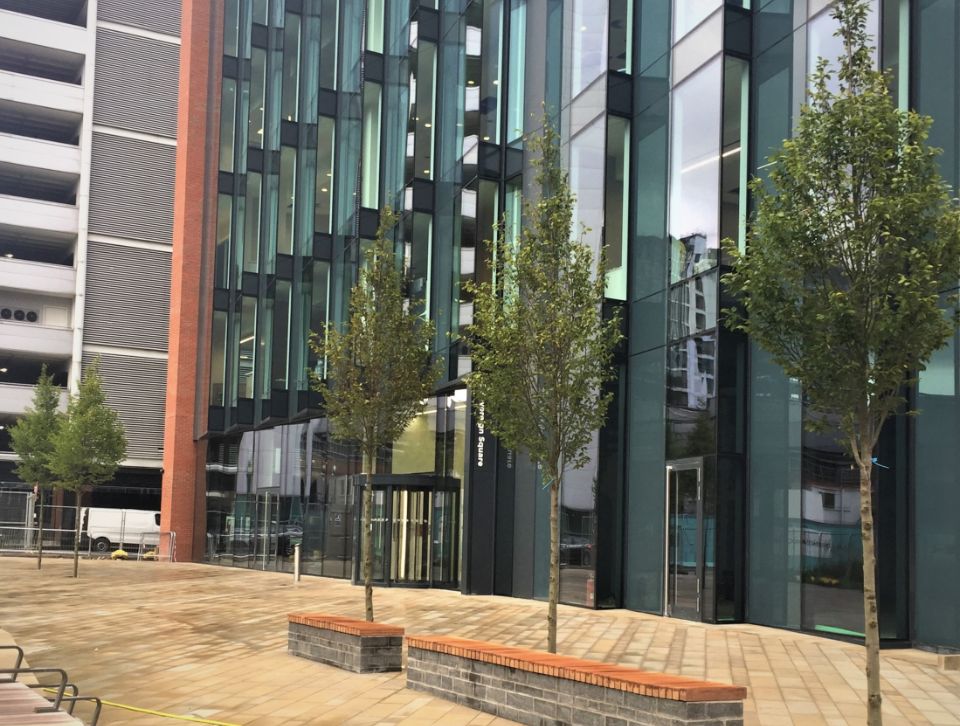DeepRoot Silva Cells were installed to help nearly 50 new street trees access adequate soil volume, while also offering area stormwater treatment
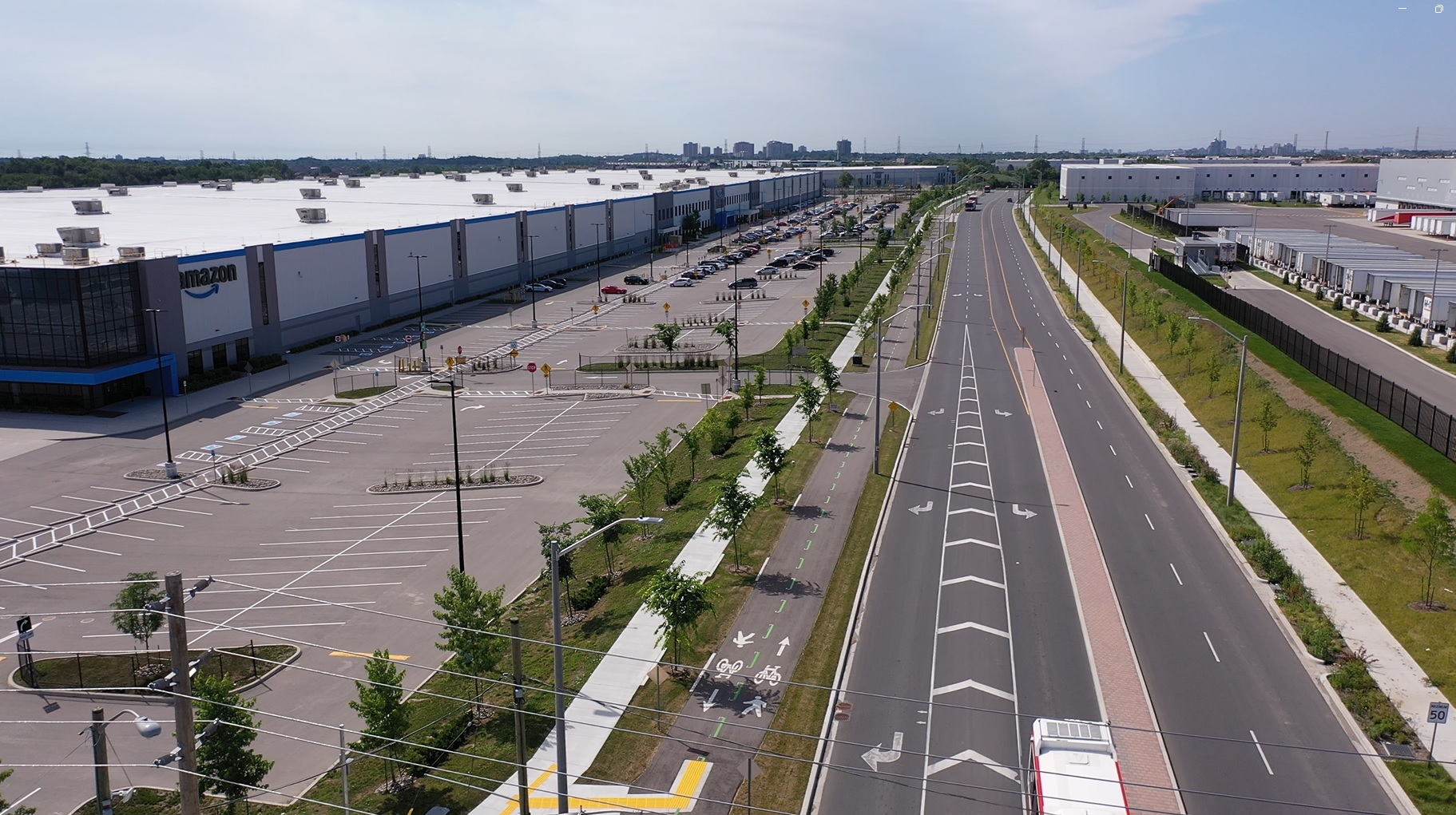
In 2020, a 700-employee Amazon fulfillment center was opened in the northeast Scarborough neighborhood — the sixth such facility in the Greater Toronto Area. Accommodating the travel needs of the new workforce, many of whom commute by bus, became an urgent need for company officials and city planners: Morningside Avenue, from Steeles Avenue to Passmore Avenue, required pedestrian-friendly development. A wide, multi-use path was built in tandem with green infrastructure elements: 49 street trees were planted in the DeepRoot Silva Cell system, offering commuters shady respite from the elements (while providing each tree with 30 cubic meters of soil volume, per Toronto city mandate) as well as performing on-location stormwater management.
Number of Silva Cells: 862 (3x) and 840 (1x)
Amount of Soil Volume Per Tree: 30 m3
Number of Trees: 49
Type of Project: Streetscape, Stormwater
Project Designer: The Municipal Infrastructure Group
Project Contractor: Memme Construction
Installation Date of Silva Cells: Summer 2020
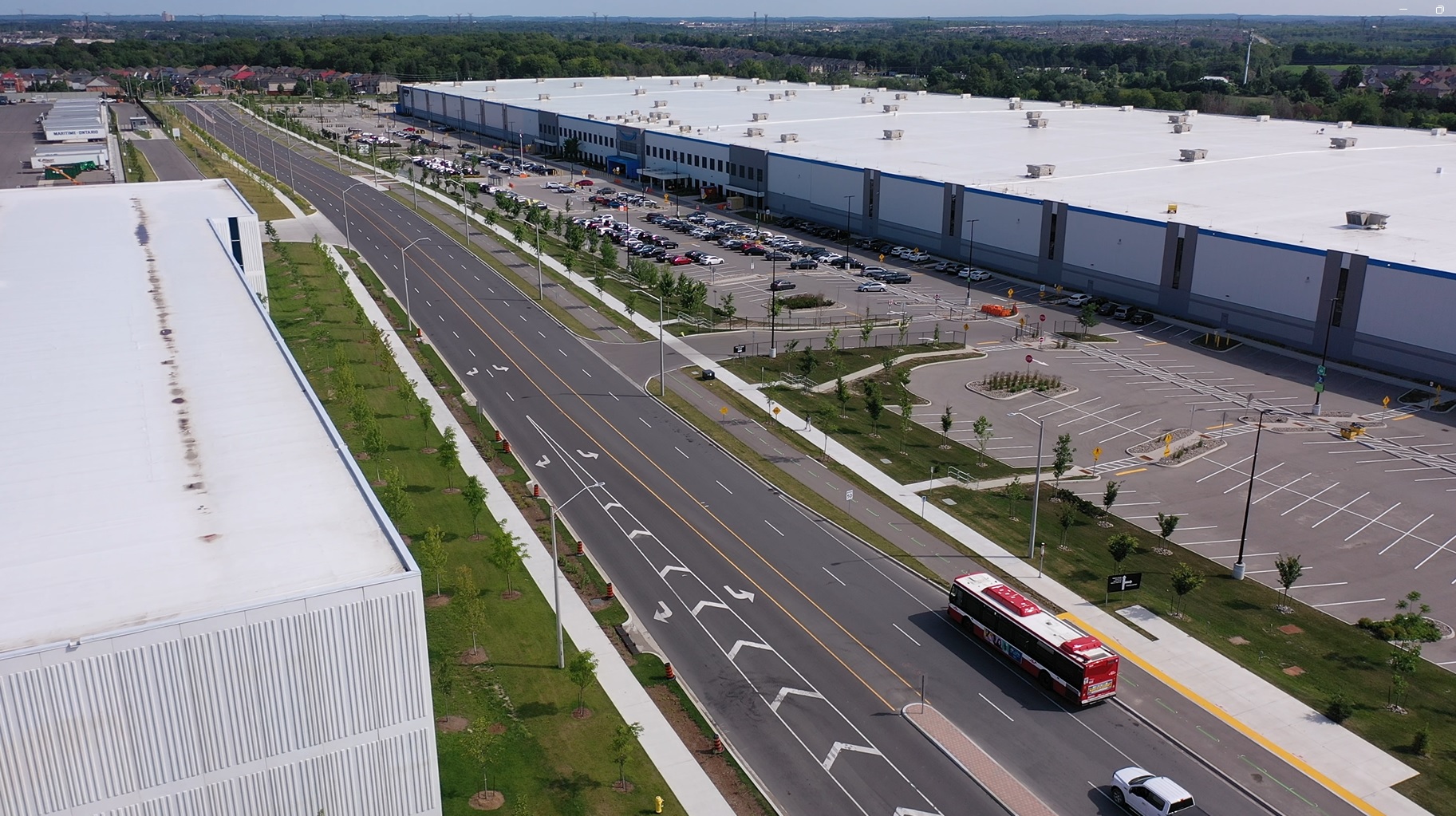
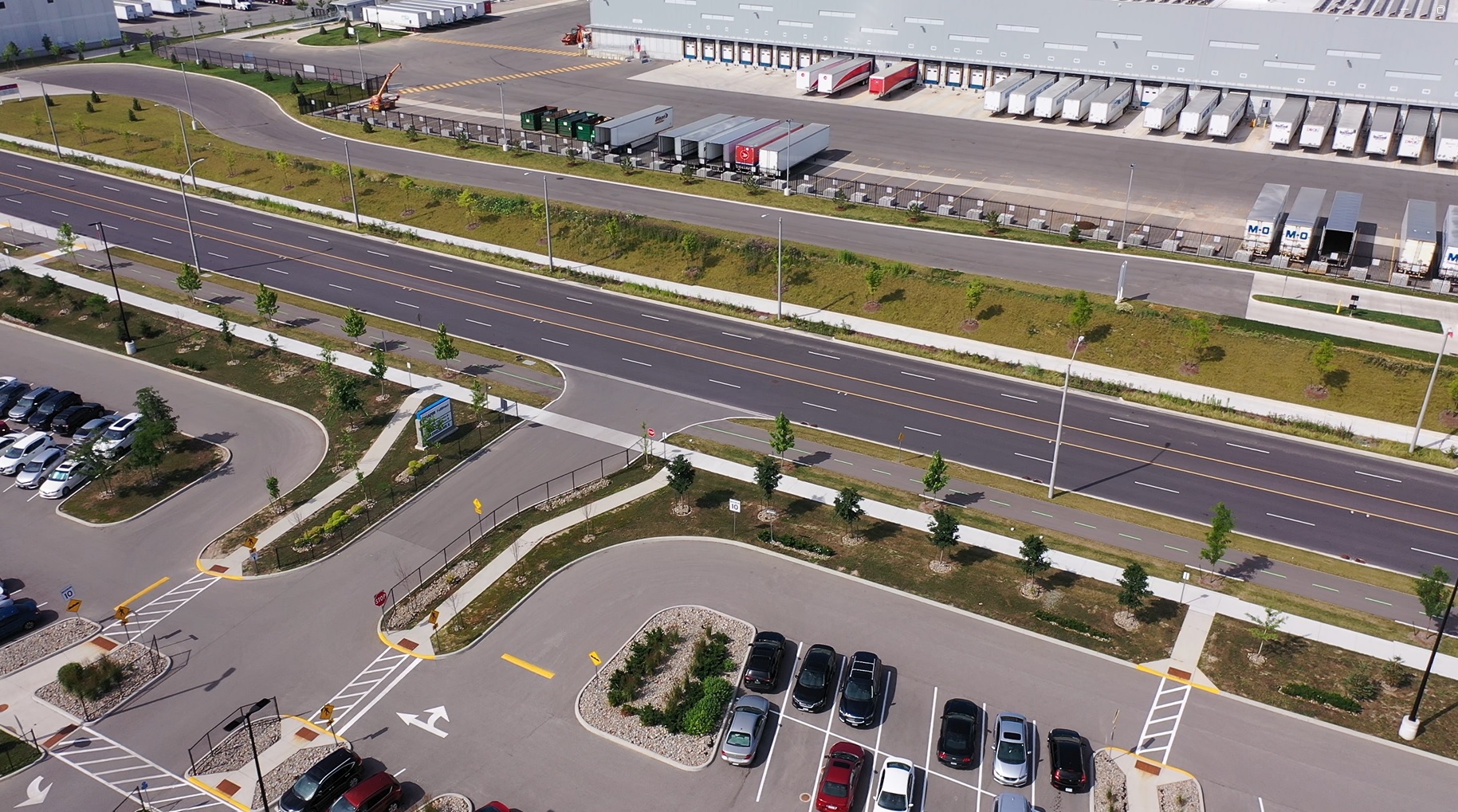
In 2019, Amazon announced plans to build a fulfillment center in Scarborough, a northeastern district in the City of Toronto. The one million square-foot facility, officially opened in the summer of 2020, provided 700 new jobs to local residents — a welcome boon in the uncertain economic environment brought on by Covid-19.
The previously unused land on which the warehouse was constructed, however, presented an ancillary obstacle for company and city officials: the area infrastructure was in desperate need of development and modernization. Many of the facility employees commute by bus — and the road on which the warehouse was built, Morningside Avenue, was inadequately developed to meet the needs of increased vehicle and pedestrian traffic.
This stretch of Morningside, from Steeles Avenue to Passmore Avenue, was the target of an ambitious enhancement project, executed nearly in tandem with construction of the Amazon facility itself. The road needed to be more accessible, not just for cars and buses but also bikers, pedestrians, and commuters walking from their public transportation stop into the facility. In addition to the sidewalk, a new two-way, multi-use path was built, making the street more welcoming and practical for workers and residents.
Green infrastructure (GI) was also prioritized on this newly developed extension of Morningside Avenue. Nearly 50 new street trees were planted in the spring of 2021 with the hope of bringing inviting, cooling shade to pedestrians and bikers. Likewise, project designers wanted to use green, low-impact development (LID) features to assist in the treatment of on-location stormwater. Silva Cells were installed as a dual-benefit system, able to assist in both of these project priorities.
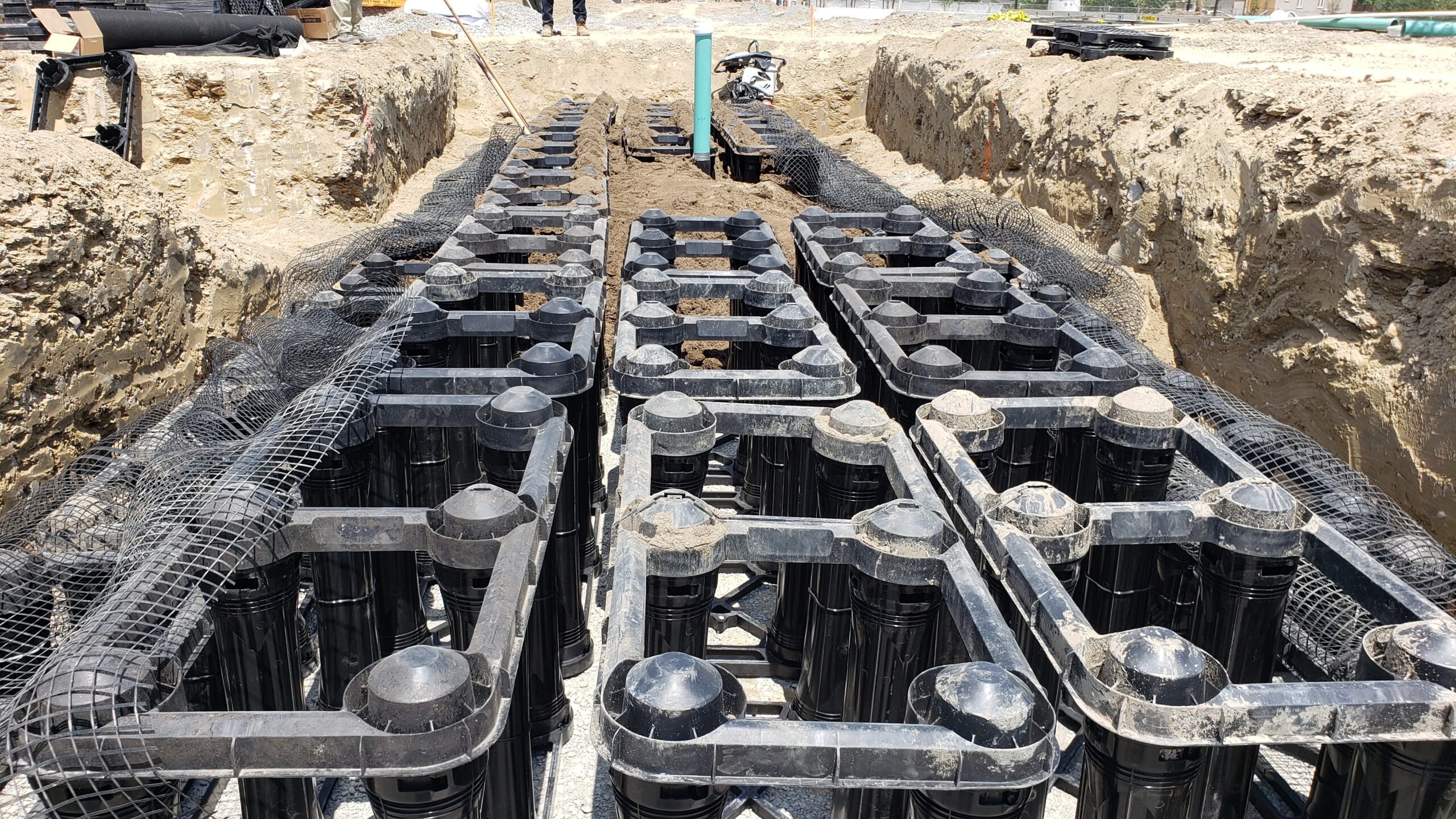
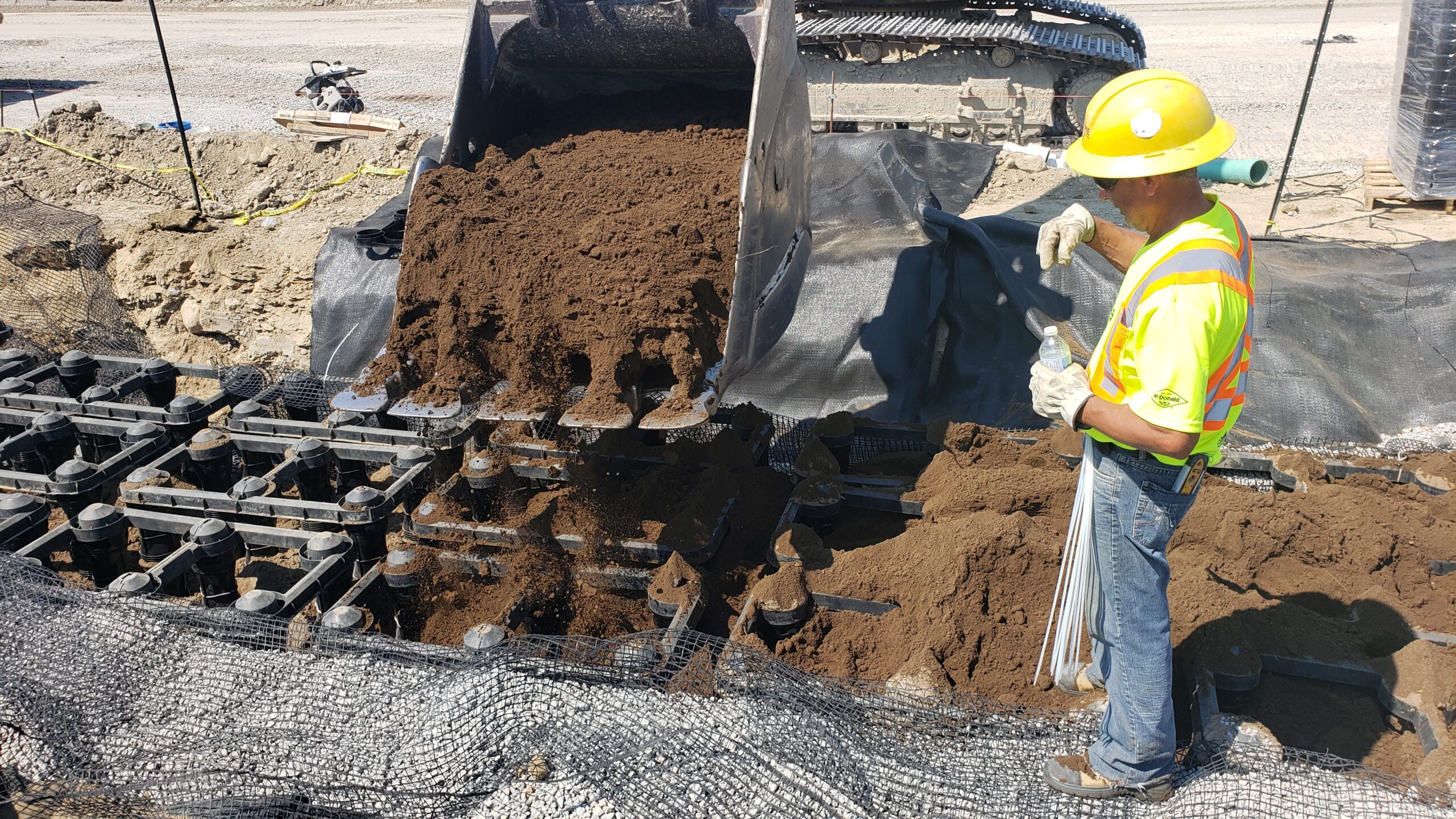
More than 1,700 total Silva Cells — a mix of 3x and 1x sizes — were installed under the multi-use path in the summer of 2020. The system serves as a suspended pavement module, providing support for the walkway above while simultaneously creating an uncompacted soil environment in which the new trees’ roots may expand and grow.
Designers were required, by the provisions of the Toronto Green Standard, to provide each new public-realm tree with access to at least 30 cubic meters of soil volume — which the Silva Cell system helps ensure. Establishing a quality, robust soil atmosphere allows the trees the best opportunity to grow to vigorous maturity, thus offering a shady green space for passersby or employees waiting for public transportation. As we approach the third summer of this urban forest’s existence, we expect to see promising growth (as the old arborists’ adage says about a new tree: in the first year it sleeps, in the second year it creeps, in the third year it leaps).
Another equally important element of the Morningside Avenue development project was its stormwater strategy, using LID features to treat runoff on location. Once again, the Silva Cells answered the call. By harnessing the stormwater from specific catchment areas along the street, the water travels into the Silva Cells via an inlet and supplies irrigation to the trees.
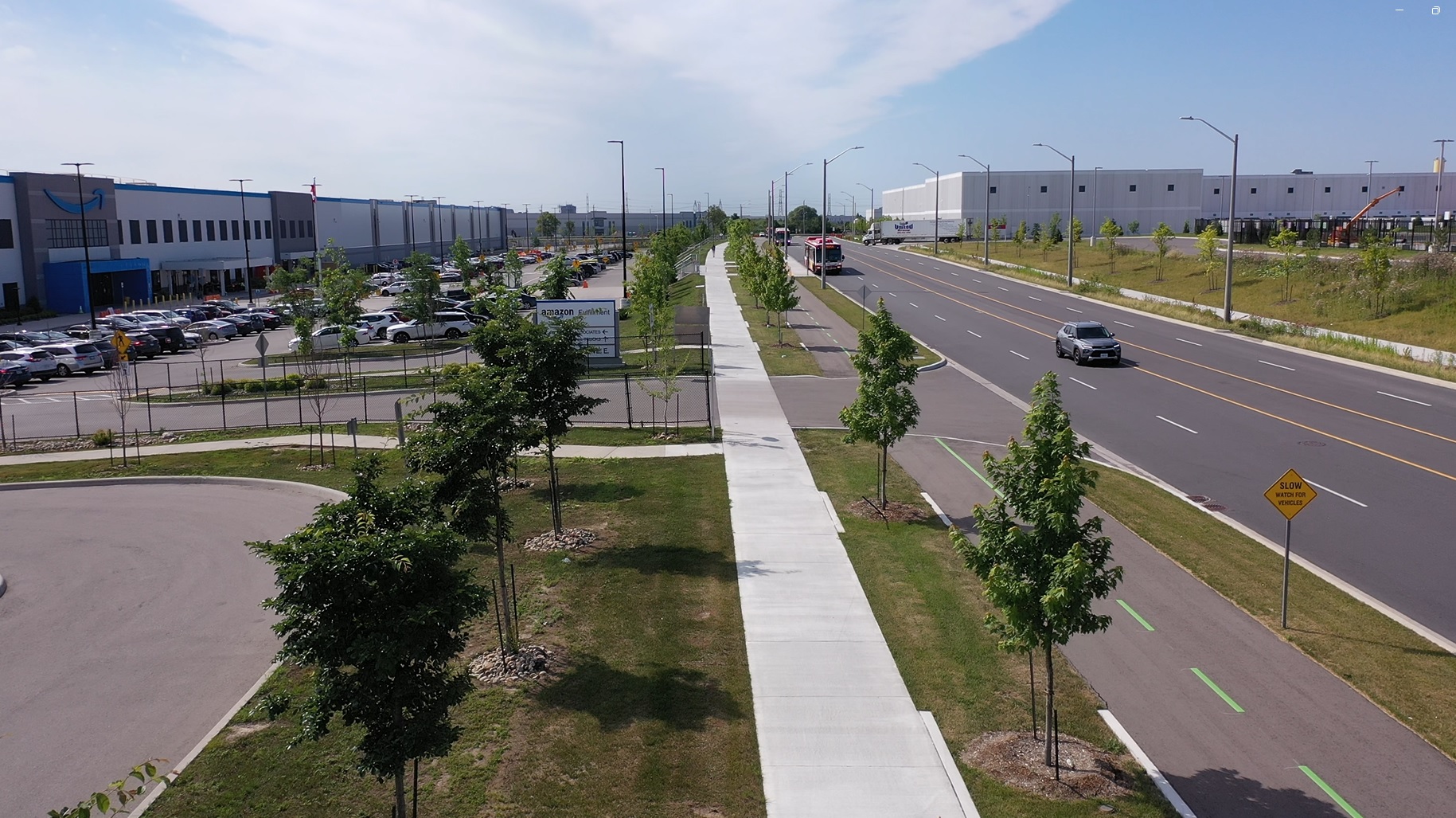
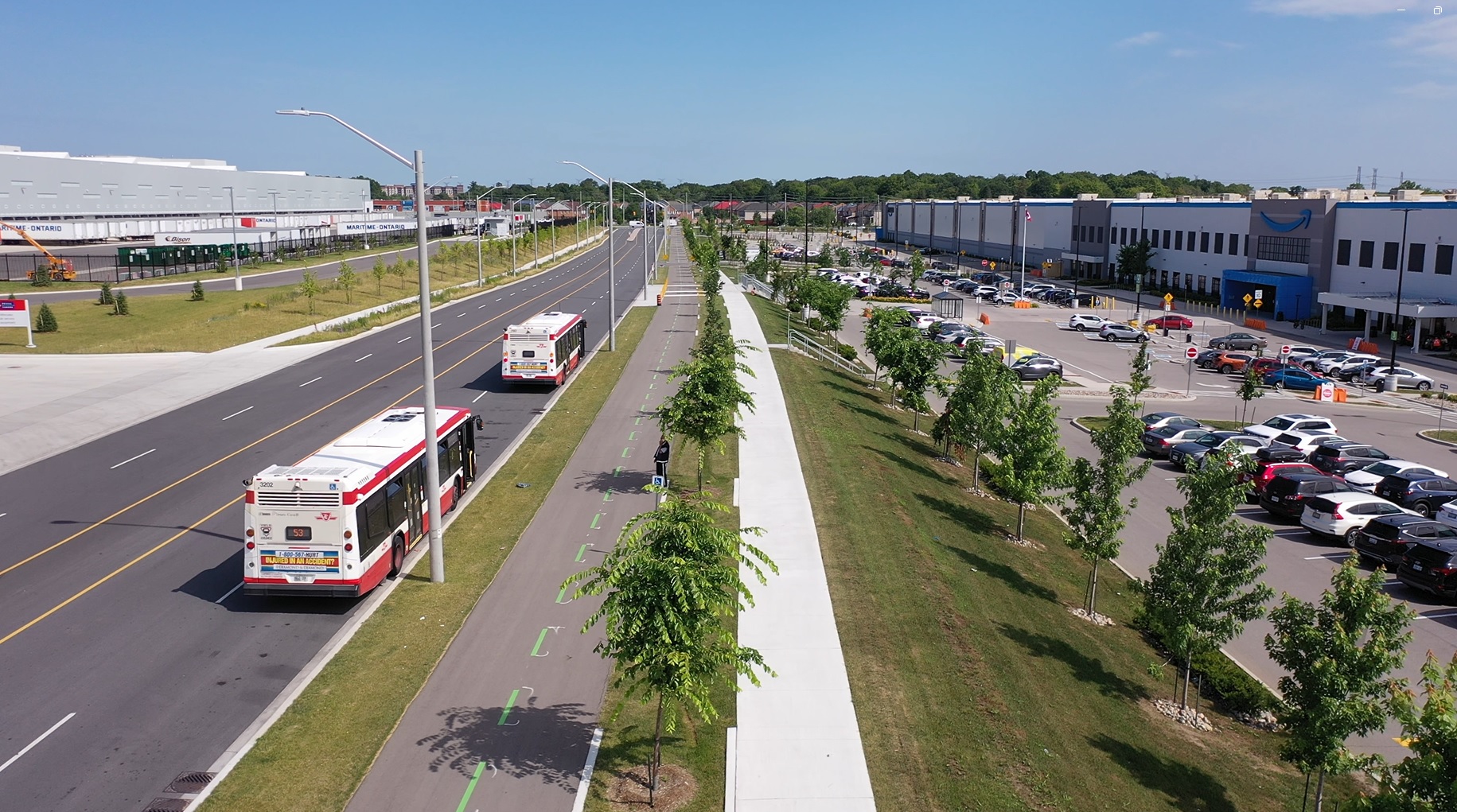
In addition to its irrigation benefits, the Silva Cell system is also serving as an underground bioretention tool. From the catch basins, water moves to an underground CB Shield, which provides a first-flush cleansing of debris and pollutants. The water then enters the Silva Cell system via a mid-level PVC pipe — the stormwater seeps into the soil from the bottom up, being treated by the soil and creating a ponding space at the top. At the downstream end, the water is collected through underdrains and carried to the storm sewer. This process not only cleans the stormwater runoff but also reduces peak flow during major rain events.
This bold green infrastructure initiative is being closely monitored by the city for its performance, with early results being very encouraging. And, as the trees mature and grow over the years, the efficiency of the GI system — with its canopy-coverage, carbon-sequestration, and stormwater treatment benefits — likewise grows exponentially.
For other DeepRoot projects in the Greater Toronto Area, check out our case studies here, here, and here.
